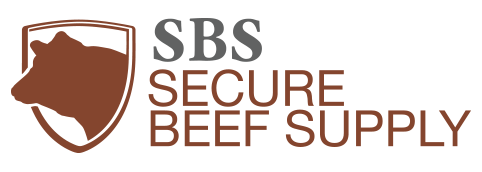Several states and regions are working with their producers, haulers, and packing plant personnel to apply the National SBS Plan to the uniqueness of their beef industry. Some States are reviewing SBS enhanced biosecurity plans for producers. Available state contact information is provided below. Is your state engaging producers and would like to be listed? Contact us
Read the Regional Planning Meeting Summary Report from the March 2020 meeting between Colorado, Kansas, Missouri, Nebraska, Oklahoma, and Texas.
Read the Regional Meeting with Packers Summary from the May 2022 meeting between several beef packers, cattle feeding operations, and state officials from Colorado, Kansas, Missouri, Nebraska, Oklahoma, and Texas.
California, Idaho and Oregon are working on a collaborative project connecting Extension Service and the State Department of Agriculture to educate cattle producers in best practices to mitigate production, market, and financial risks associated with general disease and a potential Foot and Mouth Disease outbreak.
Contacts:
- Dr. Lais Costa, University of California, Davis, lrcosta@ucdavis.edu
- Dr. Gabrielle Maier, University of California, Davis, gumaier@ucdavis.edu
The Colorado Department of Agriculture works with beef producers interested in submitting SBS Plans for review.
Contacts:
- Becky Hoffman, Animal Incident Management Specialist, Colorado Dept. of Agriculture; 303-870-5494; becky.hoffman@state.co.us
- Dr. Eryn McGrath, Assistant State Veterinarian, Colorado Dept. of Agriculture; 720-471-9399; eryn.mcgrath@state.co.us
Idaho, California and Oregon are working on a collaborative project connecting Extension Service and the State Department of Agriculture to educate cattle producers in best practices to mitigate production, market, and financial risks associated with general disease and a potential Foot and Mouth Disease outbreak.
Contacts:
- Dr. Anne Borkowski, Idaho State Department of Agriculture, 208-329-6176; anne.borkowski@isda.idaho.gov
- Meranda Small, University of Idaho, msmall@uidaho.edu
- Dr. Mireille Chahine, University of Idaho, mchahine@uidaho.edu
Kansas Implementation of the SBS Plan
The Kansas Department of Agriculture is working with beef producers, haulers, and packers through outreach workshops and biosecurity plan development to increase awareness of Kansas’ approach to animal movement in an FMD outbreak.
Contact:
- Kelly Oliver, Animal Health Planner, Kansas Department of Agriculture, (o) 785-564-6608, Kelly.Oliver@ks.gov
Minnesota is working to implement the SBS Plan with beef producers, livestock transporters, and packers through collaboration with the Minnesota Department of Agriculture, Minnesota Board of Animal Health, USDA, University of Minnesota, Minnesota State Cattlemen’s Association, and the Minnesota Beef Council.
Contacts:
- Kaitlyn Root, Minnesota State Cattlemen’s Association; 763-479-1011; mnsca@mnsca.org
- David Weinand, Minnesota Dept. of Agriculture; 651-201-6646; David.Weinand@state.mn.us
The Missouri Department of Agriculture is working with beef producers, haulers, packers, and accredited veterinarians to implement the SBS Plan through collaboration with USDA, University of Missouri Extension, and Missouri Cattlemen’s Association.
Contact:
- Bill Pittenger, Emergency Manager, Missouri Department of Agriculture; 573-644-4732, Bill.Pittenger@mda.mo.gov
The Mississippi Board of Animal Health works with beef producers interested in submitting SBS Plans for review.
Contact:
- Call 601-359-1170 or email: securefood@mdac.ms.gov
The New York State Department of Agriculture and Markets is working with producers to implement and review Secure Food Supply Plans in collaboration with the New York State Cattle Health Assurance Program (NYSCHAP) and accredited veterinarians.
Contact:
- Eireann Collins, DVM; 518-487-3502; Eireann.collins@agriculture.ny.gov
- More information about NYSCHAP is available at Cornell’s Animal Health Diagnostic Center Programs page.
The Oklahoma Department of Agriculture, Food, and Forestry (ODAFF) is working with beef producers, haulers, packers, and accredited veterinarians to implement the SBS plan through collaboration with USDA, Oklahoma State University Extension, and Oklahoma Cattlemen’s Association.
SBS Contact:
- Austyn Fuss, Secure Food Supply Planner, ODAFF, 405-522-6138; austyn.fuss@ag.ok.gov
SBS Trainer:
- Rosslyn Biggs, DVM, Beef Cattle Extension Specialist, OSU Extension; rosslyn.biggs@okstate.edu
The Oregon Department of Agriculture is working with producers to implement and review Secure Food Supply Plans in collaboration with accredited veterinarians.
Contacts:
- Dr. Sergio Arispe, Oregon State University; Sergio.arispe@oregonstate.edu
- Dr. Jamie Umber, Oregon Department of Agriculture, Animal Health Program; 503-986-4680; securefood@oda.oregon.gov
- More information is available at Oregon’s Secure Food Supply Participation page.
Clemson University Livestock & Poultry Health (LPH) is working with beef producers to implement the SBS Plan through collaboration with USDA, South Carolina Cattlemen’s Association and local county associations.
Contact:
- Dr. Patty Scharko, Extension/Field Veterinarian, Clemson LPH; 803-422-6998; pschark@clemson.edu
Texas Animal Health Commission Secure Food Supply Program
The Texas Animal Health Commission (TAHC) aims to help the industry mitigate the risk of foreign animal diseases, maintain business continuity through enhanced biosecurity plans and encourage safe and secure animal agriculture practices to maintain productivity and marketability.
Contacts:
- Dwayne Easley, 936-240-0257; Dwayne.Easley@tahc.texas.gov
- Holli Tietjen, 512-636-0882;holli.tietjen@tahc.texas.gov
The Washington Department of Agriculture is working with beef producers to implement and review Secure Beef Supply Plans in collaboration with Washington Cattle Feeders Association, Washington Cattlemen’s Association, and Washington State Beef Commission.
Contacts:
- Dr. Minden L. Buswell, Washington State Department of Agriculture, Animal Health Program; 360-280-6499; mbuswell@agr.wa.gov
- Dr. Amber Itle, Washington State Department of Agriculture, Animal Health Program; 360-961-4129; aitle@agr.wa.gov
The Wyoming Livestock Board works withproducers and accredited veterinarians on development, implementation, and review of Secure Beef Supply Plans.
Contact:
- Rose Digianantonio, DVM: 307-256-0952; rose.digianantonio@wyo.gov
